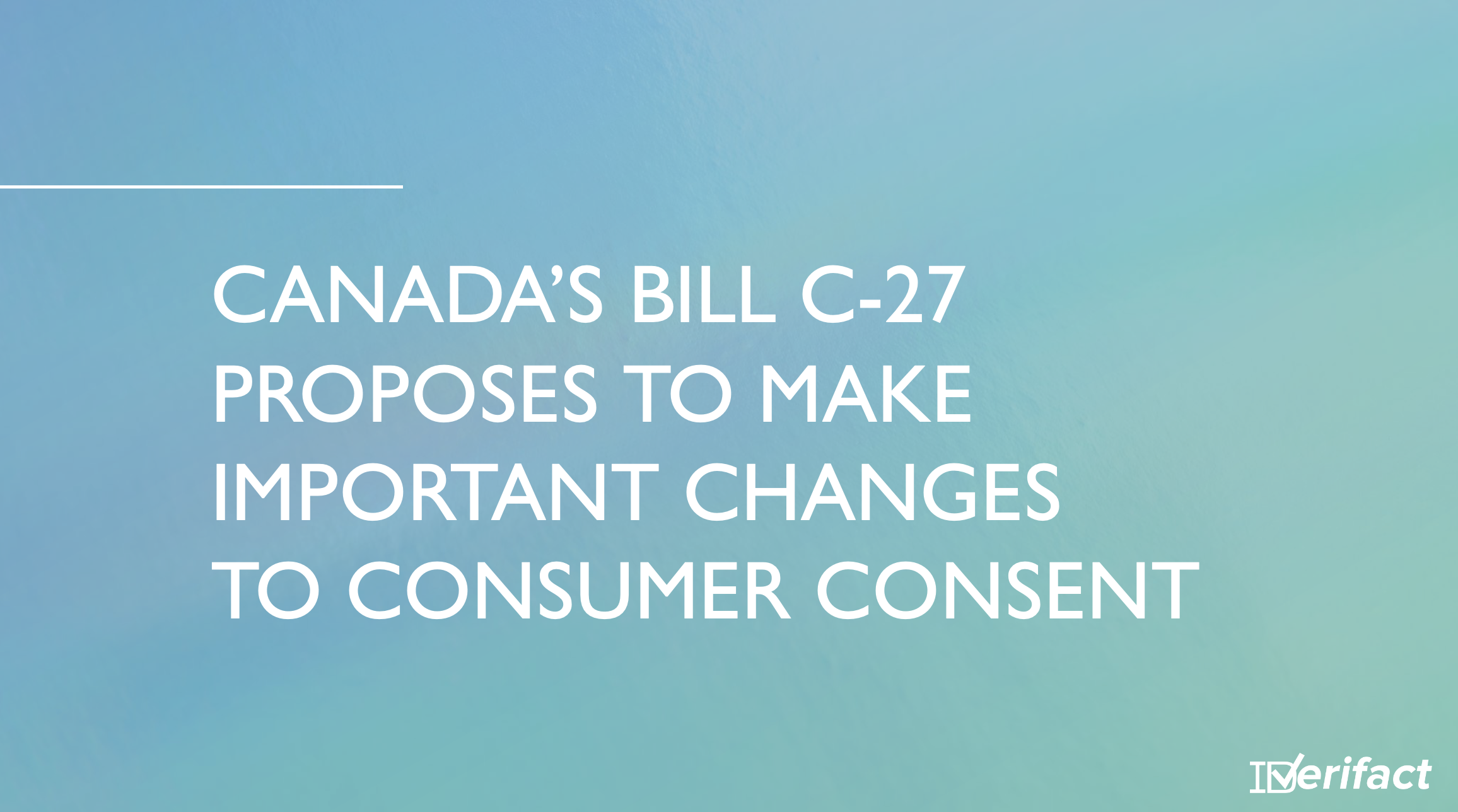
Bill C-27 Proposes Changes to Consumer Consent
The collection and use of personal information has become more prevalent than ever. With the rise of e-commerce, and online entertainment it is crucial to establish laws and regulations that protect consumers’ personal information while ensuring that companies comply with ethical standards.
In Canada, Bill C-27 – Digital Charter Implementation Act 2022, currently in its second reading, aims to enact The Consumer Privacy Protection Act (CPPA), which will amend several laws related to consumer consent and compliance.
In Canada, Bill C-27 – Digital Charter Implementation Act 2022, currently in its second reading, aims to enact The Consumer Privacy Protection Act (CPPA), which will amend several laws related to consumer consent and compliance.
The CPPA has a substantial impact on protecting consumer consent management and personal information gathered during all types of e-commerce. In accordance with a number of the bill’s provisions, businesses must first get consumers’ explicit and informed consent before collecting, using, or disclosing their personal information. This includes the right to be informed of the purpose behind the collection of their data, the types of personal information collected, and who receives that information.
The CPPA also includes provisions related to consent obtained by deception. Section 16 of the bill states that “consent obtained by deception is invalid,” meaning that companies cannot deceive consumers into providing their consent. This provision guarantees that businesses cannot get consent by deceptive or incorrect information, which is an important step in safeguarding the rights of customers.
The CPPA also specifies precise guidelines for how a business may get customer permission. The bill requires that companies obtain explicit consent from consumers for each specific purpose for which their personal information is being collected, used, or disclosed. Companies must also provide consumers with the option to withdraw their consent at any time.
The protection of personal information and ensuring that businesses follow ethical standards would both be significantly impacted by the proposed Bill C-27. The IDVerifact platform is a great resource for businesses to help them understand the rules surrounding getting consumer consent and making sure that their consent management procedures are in compliance with the CPPA.
The IDVerifact platform includes a robust consumer consent management functionality that exceeds the current requirements of the proposed CPPA. The platform also helps companies navigate the laws and regulations behind obtaining consumer consent, ensuring that their consent provided is valid and compliant with regulations.
The CPPA also includes provisions related to consent obtained by deception. Section 16 of the bill states that “consent obtained by deception is invalid,” meaning that companies cannot deceive consumers into providing their consent. This provision guarantees that businesses cannot get consent by deceptive or incorrect information, which is an important step in safeguarding the rights of customers.
The CPPA also specifies precise guidelines for how a business may get customer permission. The bill requires that companies obtain explicit consent from consumers for each specific purpose for which their personal information is being collected, used, or disclosed. Companies must also provide consumers with the option to withdraw their consent at any time.
The protection of personal information and ensuring that businesses follow ethical standards would both be significantly impacted by the proposed Bill C-27. The IDVerifact platform is a great resource for businesses to help them understand the rules surrounding getting consumer consent and making sure that their consent management procedures are in compliance with the CPPA.
The IDVerifact platform includes a robust consumer consent management functionality that exceeds the current requirements of the proposed CPPA. The platform also helps companies navigate the laws and regulations behind obtaining consumer consent, ensuring that their consent provided is valid and compliant with regulations.
